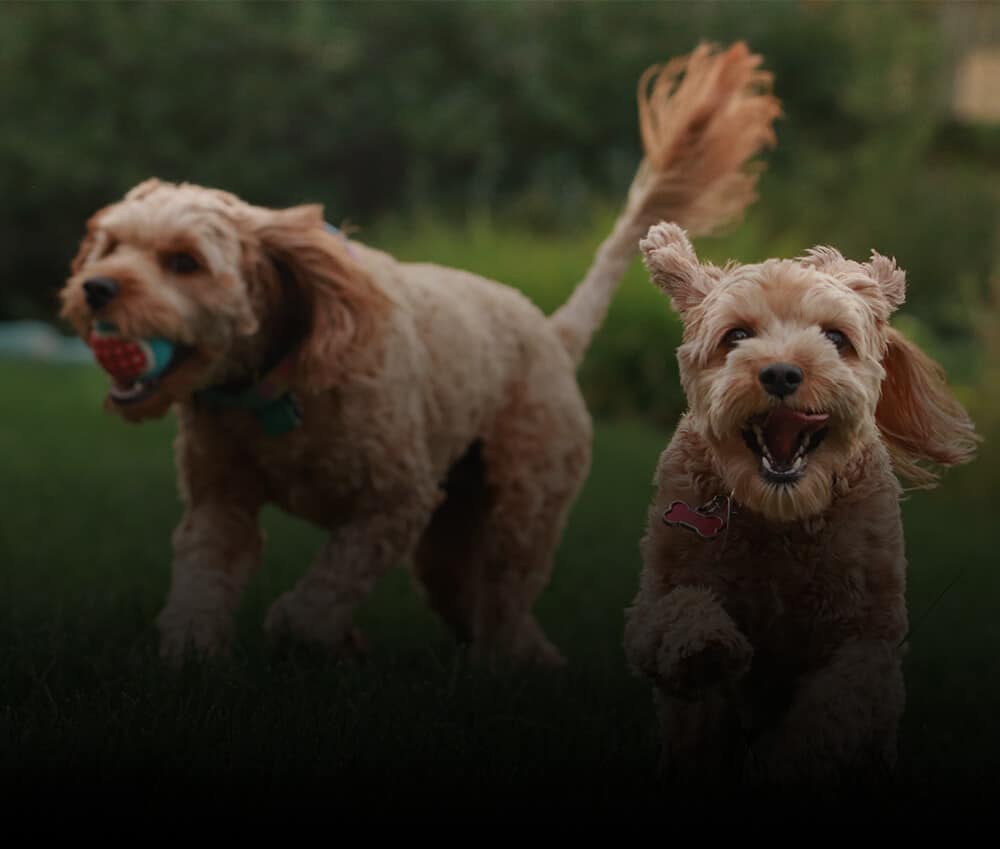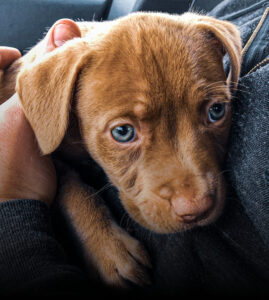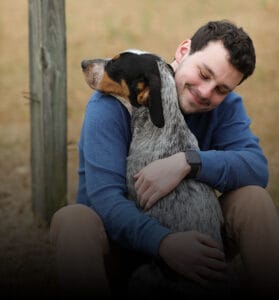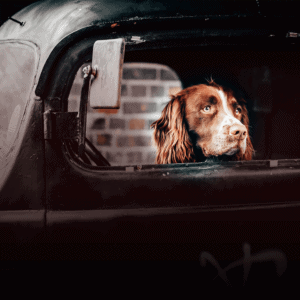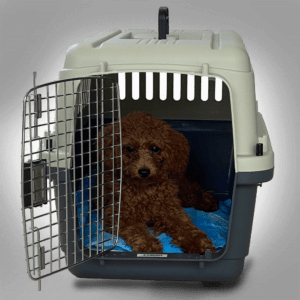Every puppy parent wants to raise a confident, well-behaved dog and the key lies in successful socialising.
Whether it’s meeting other animals, being around new people or coming across cars on a busy street, your puppy will have to be carefully introduced to each situation.
Here’s how to prepare your puppy for the outside world through socialisation.
What does socialising a puppy mean?
Socialising a puppy means deliberately putting a puppy in new situations where they will meet other dogs or people.
Examples include meeting people you know, being around strangers or children, meeting other dogs and animals (like cats), going to events, spending time at the beach and visiting the vet.
In a nutshell, socialisation is an important part of puppy training. It helps them to regulate emotions in different environments and learn how to handle unknown situations.
Plus, according to animal welfare charity Blue Cross, dogs with more varied experiences as a puppy are less likely to develop behavioural problems in later life.
What age is best to start socialising a puppy?
Dog experts recommend socialisation should start between three and 12 weeks of age, which is a key stage of puppy development.
After 16 weeks of age though it can become more difficult and is likely to involve more time and patience.
How to socialise a puppy
The best way to start socialising a puppy is to take him or her out for daily walks.
In fact, according to experts, this is a crucial part of raising a puppy as it instils confidence and helps your pooch to become more aware of the world.
For example, if you live in the countryside, it’s a good idea for your puppy to come across other animals like cows, sheep and horses during a daily walk.
Whereas if you live in a city, it makes more sense to introduce your pup to cars, bikes and crowds of people – the type of experiences they will have on a regular basis.
But take it easy at first.
Keep your puppy on a lead while walking and mix up the routes to give your pup as many new experiences as possible.
How to deal with puppy nerves
Don’t panic if your pooch is nervous about socialising.
Sometimes puppies just need time to get used to new sights and sounds, and sensory overload can be overwhelming for a little pup.
Instead, try to encourage your puppy by using treats to reward good behaviour. Dog treats can go a long way in training and establishing trust, so feel free to use it to your advantage.
Another useful tip for socialising a nervous puppy is to join a training class.
Dog training provides a safe and controlled environment for both you and your doggo. As well as the perfect opportunity to introduce your pup to strangers and other dogs.
Not only will your puppy leave well-behaved, but hopefully more confident too.
Socialising a puppy before vaccinations
Most puppies join their new home at around eight weeks of age. Typically, this is before they are fully vaccinated.
However, this doesn’t mean you have to keep your pup locked up until it’s safe to go outside.
Here’s how to start safely socialising a puppy pre-vaccination:
- Carry them when outside instead of putting them down on the ground.
- Don’t let them out of the garden.
- Take your puppy out in the car to provide a new experience.
- If another dog’s vaccination status is unknown, don’t let you pup socialise with them.
Taking puppies outside – even if carried – will help them to get used to outdoor environments, different smells and new sounds.
This way, it won’t be too much of a shock to the system once your pup is vaccinated and ready to play.
But make sure you escape-proof the garden to avoid any unexpected adventures around the neighbourhood. Or contact with other animals during this time.
How to socialise a puppy in public spaces
Vets recommend waiting two weeks after vaccination before fully introducing a puppy to the outside world.
It’s also a good idea to introduce your puppy to new places in gradual stages. Too much too soon could overwhelm and frighten your pup, which is not the desired result.
First on the socialising list should be people that your puppy will often come into contact with, such as friends and family (including children).
When meeting with people or visiting new places, remember to stay relaxed. Dogs pick up on behaviour and emotions, so if you act like it’s safe, your puppy will too.
Additionally, ask new people to crouch down when meeting your puppy for the first time. Then allow the pup to approach them, not the other way around.
How to socialise a puppy with cats
It’s well known that dogs and cats are arch enemies, but it is possible for them to become friends if they are introduced to each other gently.
Helen Taylor, Blue Cross Education Manager, advises taking some time to prepare by following the steps below:
- Create a sanctuary for your cat that is out of reach of the puppy. Cats are independent animals and need their own space.
- Get a crate for your puppy so he can have some time alone too. You can find out more about crate training here.
- Try scent swapping – introducing an item with the cat’s scent – before you bring the puppy home to avoid overexcitement from the new smell.
- Separate the animals during the first few days to give them time to get used to the new situation.
Finally, a little patience can work wonders when it comes to introducing dogs to cats. So don’t worry if the two creatures don’t hit it off straight away because it could take time.
READ MORE: How to choose a puppy from a breeder

